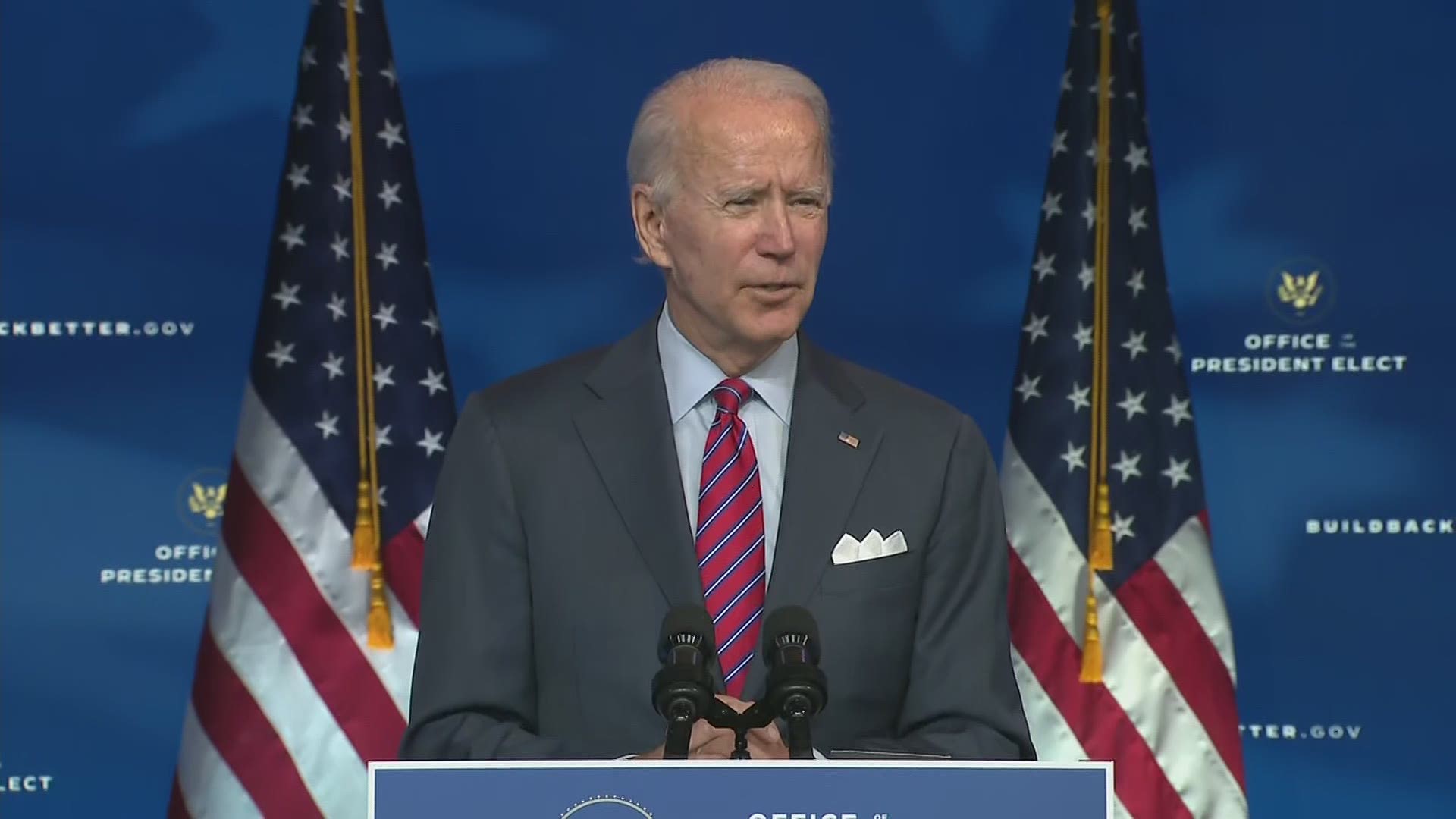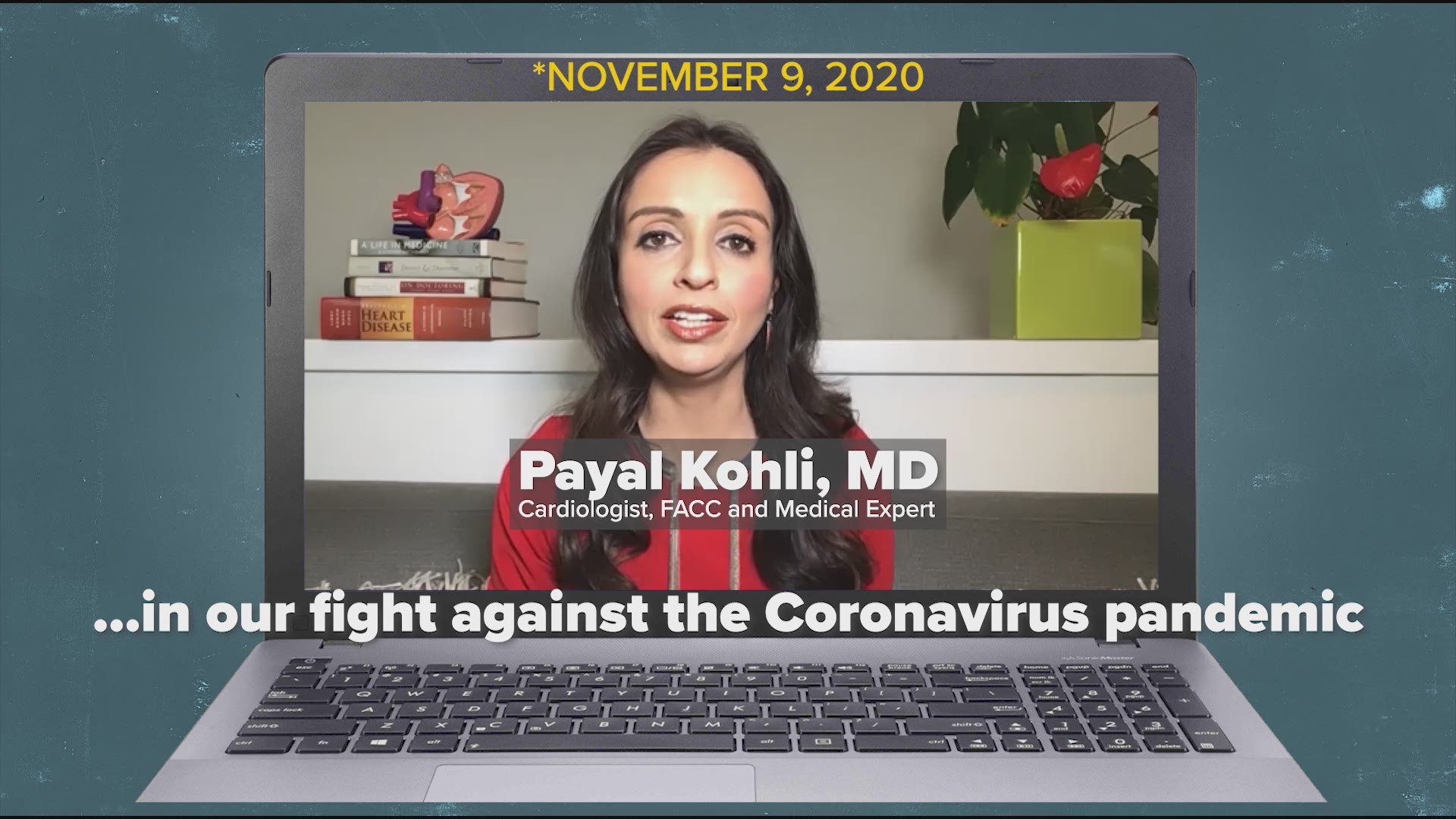WASHINGTON — President-elect Joe Biden said Friday that another round of coronavirus stimulus checks "may still be in play."
"I think it would be better if they had the $1,200 [direct payments] and I understand that may still be in play, but I'm not going to comment on the specific details," Biden said when asked about criticism surrounding a bipartisan relief plan revealed this week as a starting point for negotiations.
After lengthy delays, optimism is finally building in Washington for another COVID-19 relief bill. House Speaker Nancy Pelosi and Senate Majority Leader Mitch McConnell have initiated late-game negotiations in hopes of combining a relief package of, in all likelihood, less than $1 trillion with a separate $1.4 trillion government-wide omnibus spending bill.
What exactly will be in the final product is still up in the air but renewing soon-to-expire jobless benefits, providing a second round of “paycheck protection” subsidies, and funding to distribute vaccines are sure bets to be included in any deal.
Pelosi and Senate Democratic leader Chuck Schumer said they supported a bipartisan $908 billion proposal as the "basis" for negotiations. But some lawmakers, including Vermont Senator Bernie Sanders, have spoken out on that plan because it doesn't include a second round of $1,200 direct payments to most Americans.
Sanders called it "unacceptable" that the proposal doesn't "at the very least" provide another coronavirus stimulus check. The senator also criticized that the bill provides "100%" liability protections for businesses and universities.
"Tens of millions of Americans living in desperation today would receive absolutely no financial help from this proposal. That is not acceptable," the former presidential candidate said in a statement.
While responding to that criticism Friday, Biden said he's made it clear that the COVID-19 relief package being discussed in Congress is "just a down payment. This is not the end of the deal."
President Trump and House Democrats have long supported another $1,200 round of direct payments to most Americans, but it is unpopular with many Senate Republicans. The up to $300 billion cost for a second round could render them too expensive for inclusion in this year-end package.


